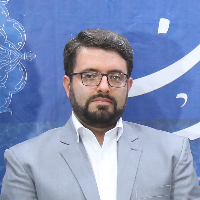Paradigmatic Foundations of the Interdisciplinary Approach And its Relation to the Theoretical Tradition of Islamic Philosophy
Efficient Islamic humanities, in order to solve objective problems and dilemmas that are generally multidisciplinary, cannot be stopped in the disciplines and requires the use of an interdisciplinary approach. While interdisciplinarity is a new approach among Western scholars and suffers from paradigmatic ambiguities and a lack of fundamentals, using this method in the paradigm of Islamic science is not possible without considering its implications and fundamentals. This article uses a descriptive and analytical method and uses library resources and tries to clarify the proximity and relation and connection between interdisciplinarity and the paradigm of Islamic science in three steps: Does this paradigm have the capacity, ability and competence of interdisciplinary studies or not?
The method of discovery in this issue is biblical and the method of evaluation is rational analythic.
In the first step, while examining the proportion and relation between "System" and "Interdisciplinary", it tries to extract and introduce the main epistemological, methodological and ontological foundations of interdisciplinary. Understanding complex facts and systems is only possible through interdisciplinary methods and in the other hand Interdisciplinarity is itself a systemic approach to research. There are many similarities between the systemic approach and the interdisciplinary approach, which reinforces the two-way relation and connection between the two. Therefore, interdisciplinarity and systemic approach are two sides of the same coin. The subject of interdisciplinary studies is always a "system"; especially complex systems and not simple and linear. In fact, multidimensional subjects can be modeled with complex systems. One of the main epistemological foundations of the interdisciplinary approach is "coherence". "Methodological multiplicity" is also the most important methodological basis of the interdisciplinary approach. The ontological foundations of interdisciplinary studies are also the "systematization" of phenomena and their complexity.In the next step, by presenting and comparing these principles to the paradigm of Islamic science, the acceptance of this paradigm from the principles of interdisciplinary becomes clear. The advanced epistemological system of this paradigm does not negate coherence and efficiency and is not without them; rather, in the context of foundational theory, it supports and recommends them as secondary criteria. In methodological foundations, the multiplicity of tools and consequently the multiplicity of methods are accepted in this paradigm. This basis provides the basis for a comprehensive study of the facts and his logical conclusion is that an interdisciplinary approach should be used in cognition and study. Also, the Islamic paradigm not only accepts systemic thinking based on the systematization of phenomena and their complexity, but also expresses this thinking about the whole system of existence as a macro system and extends it to all other facts.
In the third step, it is shown that this paradigm somehow enhances these principles that targets the "superior interdisciplinary" and does not stop at the level of the common interdisciplinary. The paradigm of Islamic science has not only accepted the theoretical foundations of the interdisciplinary approach, but has also mentioned them more comprehensively in its paradigmatic foundations. Presenting "coherence" in the context of "matching theory" implies closing the way to epistemic idealism in cognition. The increasing complexity of the system of existence emphasizes the need for a comprehensive study of facts.
-
The Advantages of Mainstream Studies of Islamic humanities
Seyed MohammadTaghi Movahed Abtahi *, Ali Ebrhimpour
Journal of Islam and Social Sciences, -
Designing a Pyramid of Epistemological Foundations of the Islamic Paradigm of Science Derived from the Essence of Islamic Wisdom with Emphasis on the Foundations of Ayatollah Motahhari
Ali Ebrahimpour*
Journal of Fundamental Researches on Humanities,



